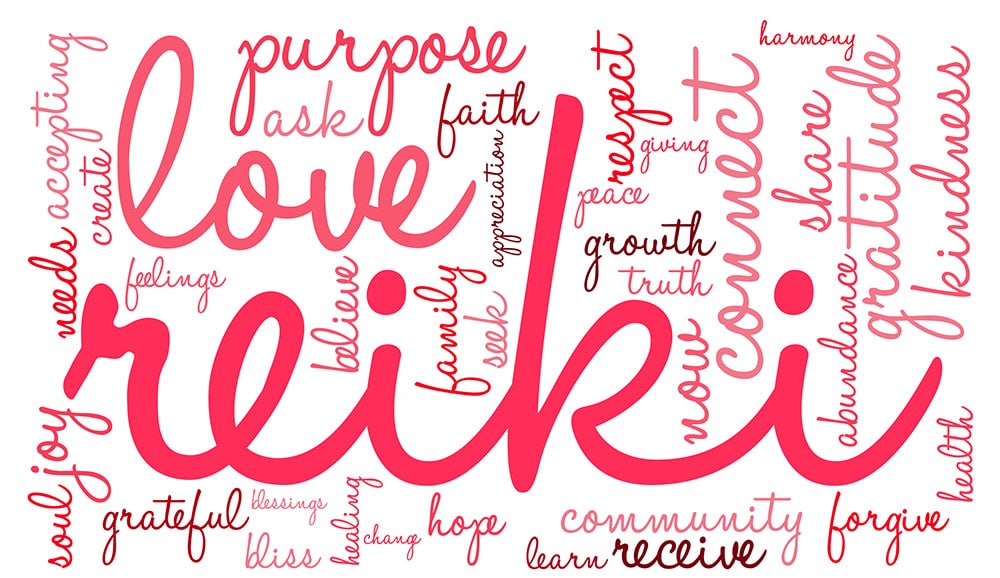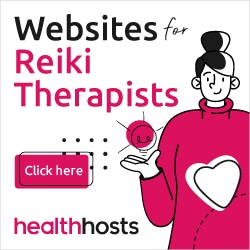Responding with Reiki

Given all the horrendous events in the UK over recent month we probably all share the call of our political and community leaders to respond with love. Yes, there is a huge amount of fear, anger, hate and other negative emotions . . . this is only natural . . . but we have an opportunity, as the wonderful people of Manchester, for example have demonstrated, of allowing the situation to bring out our best: genuine compassion and community spirit, for example.
But as the weeks and months unfold and deeper feelings surface, this often isn’t easy. How can we handle the deep hurt and frustration that terror attacks or greedy organisations trigger? Reiki provides an excellent answer . . . particularly by taking First Degree Reiki Training and using Reiki for self-healing. This, from my 20 years’ experience of Reiki, is how it originated and when it really comes into its own.
When we talk of ‘Reiki’ we might mean ‘The Usui System of Natural Healing’ or we might mean the energy Reiki: the universal life-force energy. Reiki as a form of healing, as known today, owes its existence to Mikao Usui. But to understand and benefit from the healing we need to understand and, most of all experience the energy.
What is the underlying energy of creation? It goes by many names, Reiki included, but the idea we can all relate to is of Love. Reiki healing is no more, nor less, than an intent to Love and Be Love. And isn’t that precisely what the world needs more than ever these days!
Of course, Love comes in many forms. And Reiki helps us to find an appropriate way of finding our inner compassion and wisdom and (re)connecting to a source of genuine warmth and understanding. In the heat of the moment, during and immediately after an horrific event , community spirit comes into play. With Reiki within us, spontaneous acts of caring and comfort flow even more naturally.
In the days, weeks and months that follow, so brotherly love for our fellow man, and paternal love for lost souls all come into play. From Reiki mode our natural instinct to be present for those in need is enhanced. Our capacity to reach out and ‘do our bit’ is not only increased but, by so doing, our understanding of shared human needs . . . to love and be loved, becomes ever clearer to us.
But we must not forget ourselves! Reiki is, first and foremost, a self-healing technique. And there’s nothing selfish about putting ourselves first, once in a while. Reiki self-healing is a self-love that helps us to tune-into and recognise our inner needs and deeper feelings. We might relate it to improving our Emotional Intelligence, or taking a spiritual growth journey. How it’s described isn’t important. What matters is being willing to face our issues and deal with our ‘stuff’. Perhaps we’ve not dealt with the loss of a loved one: Reiki can help us grieve . . . and move on. Perhaps we harbour a grudge for something that happened decades ago: Reiki can help us forgive.
Amidst the current atrocities and general uncertainty are signs that human ways of doing things need to change. Blaming others isn’t going to help. Taking the Reiki path can be our way of accepting our personal responsibility for our health and our feelings. If we feel hatred, then it is within us. It probably results from some deep fear or misunderstanding. Using Reiki on ourselves, with a willingness to rise above judgements, can be our way of helping to turn hate into hope.
The teaching and learning of Reiki lends itself to an on-going process of reconnecting to what matters most in life and restoring our own core values and ways of living, naturally and healthily. The more at peace we are with ourselves the better our impact in the world. As we learn and practice Reiki so we no longer feel helpful in challenging times.
The Reiki Personal Growth Journey
Learning Reiki normally has 3 stages:
- First Degree (Reiki 1): we’ve shown how to give ourselves (and friends or family) a Reiki session, and given the history and principles of Reiki. At this level Reiki is a physical practice to help us relax and find some inner peace.
- Second Degree (Reiki 2): includes being given the Reiki symbols and how they are used for distance/absent healing. At this level we learn how to use Reiki for our own mental and emotional healing: an essential part of any personal growth process.
- Reiki Masters (Reiki 3): Here we develop our inner connection ever deeper. This is about self-mastery, being our true self in the world. Very much about personal development, this level often also include training to be a Reiki Master/Teacher so that you can teach others . . . although this doesn’t have to be in formal classes or professionally. As a Reiki Master we ‘teach’ through setting an example.
All levels of Reiki training also include Reiki ‘Attunements’ which tune you into the Reiki energy and are the progression of the ancient wisdom through Master to student . . . as in many Eastern martial arts practices.
Having learnt the basis of Reiki, it’s always with us. Whenever anger or hate is triggered we can do a self-Reiki treatment. This will help us dissolve our own reactions and, if appropriate, start to unravel our own chips-on-shoulder and other out-dated conditioning that may be preventing us to me the truly loving person we naturally are.
The appalling incidents in June 2017 in Manchester and London can be usefully considered as a wake-up call to the country: indicators or the serious unrest and disconnection of so many of us. It’s time to ask ourselves what really matters to us, in life? Reiki provides the ideal tool for exploring such questions. If you’re struggling to find an authentic response to terrorist attacks, Brexit uncertainty or more personal situations, training in Reiki could well be you best next move.



Thank you so much for this article. Sums up the need for Reiki and explains its existence very well for those already aware and those not so aware! I can relate to all that is said as though I put my own thoughts onto paper but they wouldn’t be so clear. Gratitude in abundance!